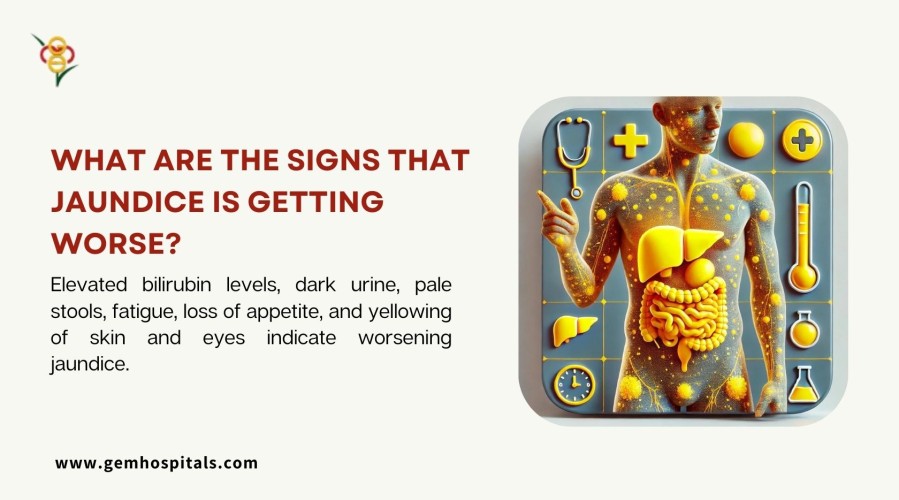Learn effective solutions for digestive problems with expert tips to improve gut health, reduce discomfort, and maintain a healthy digestive system.
What Are the Signs That Jaundice Is Getting Worse?

Jaundice, characterized by a yellowing of the skin and eyes, is a condition that signals an underlying health issue, often related to liver dysfunction. It's crucial to recognize the signs that jaundice is worsening so appropriate medical intervention can be sought. Here’s a detailed look at the symptoms and what they indicate.
Increasing Yellowing of the Skin and Eyes
One of the most noticeable signs that jaundice is worsening is an intensification of the yellow hue in the skin and eyes. This indicates a higher level of bilirubin in the blood, which could be due to a deteriorating liver condition or increased breakdown of red blood cells.
- Skin: The yellow tint becomes more pronounced and spreads.
- Eyes: The whites of the eyes turn a deeper shade of yellow.
Darkening of Urine
As jaundice progresses, urine may turn a darker shade, often described as tea-colored or brown. This change is due to excess bilirubin being excreted through the kidneys.
- Initial Sign: Slightly darker urine.
- Worsening Condition: Urine becomes significantly darker and more concentrated.
Pale or Clay-Colored Stools
Healthy stool colour can range from brown to green, but jaundice can cause stools to become pale or clay-coloured. This change is a sign that bile flow is obstructed or reduced.
- Observation: Stools lose their normal colour.
- Implication: This could suggest a blockage in the bile ducts or severe liver dysfunction.
Intense Itching (Pruritus)
Pruritus, or intense itching, often accompanies worsening jaundice. This symptom occurs because bile salts accumulate under the skin, causing irritation.
- Early Stage: Mild itching that comes and goes.
- Progression: Persistent, severe itching that can disrupt daily activities and sleep.
Fatigue and Weakness
As jaundice worsens, individuals may experience increasing levels of fatigue and general weakness. This is often due to the liver’s diminished ability to filter toxins from the blood.
- Early Fatigue: Feeling more tired than usual.
- Severe Fatigue: Extreme tiredness that makes even simple tasks difficult.
Abdominal Pain and Swelling
Worsening jaundice can lead to discomfort and pain in the abdomen, particularly in the upper right quadrant where the liver is located. Swelling of the abdomen, or ascites, may also occur due to fluid accumulation.
- Mild Pain: Occasional discomfort in the upper abdomen.
- Severe Pain and Swelling: Persistent pain and noticeable swelling.
Nausea and Vomiting
Nausea and vomiting are common symptoms as jaundice worsens. They are often indicative of liver failure or severe liver disease.
- Mild Nausea: Feeling queasy or unsettled.
- Severe Nausea: Frequent vomiting and inability to keep food down.
When to Seek Medical Attention
If you notice any of these worsening signs of jaundice, it’s crucial to seek medical attention promptly. Early intervention can prevent further complications and improve outcomes.
- Persistent Symptoms: If the symptoms last more than a few days or worsen rapidly.
- Severe Discomfort: Intense itching, severe abdominal pain, or extreme fatigue.
Conclusion
Recognizing the signs that jaundice is getting worse is essential for timely medical intervention. From increasing yellowing of the skin and eyes to darkening urine and severe fatigue, these symptoms indicate that the underlying condition requires immediate attention.
Schedule an Appointment
If you or a loved one are experiencing worsening signs of jaundice, don't wait. Schedule an appointment with GEM Hospital today for expert diagnosis and treatment. Your health is our priority.
Blogs & Article
Explore current research trends in digestive health, including new treatments, advanced diagnostics, and innovations improving gut health and patient care.
Discover common digestive health myths and the real facts. Learn simple tips to improve gut health and maintain better digestion for a healthier life.


